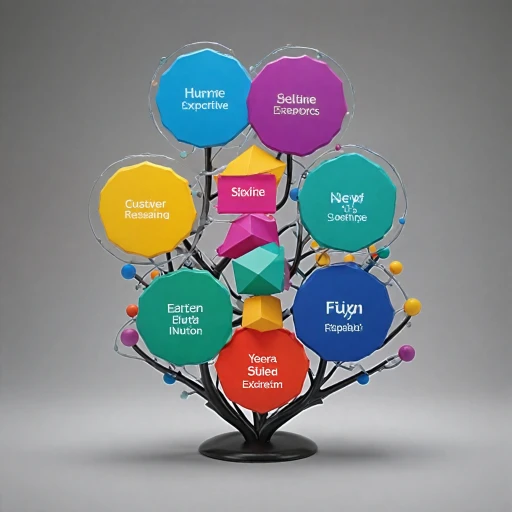
Understanding HR Enablers in AI
Exploring the Intersection of AI and HR
Artificial intelligence has emerged as a catalyst for transformation within human resource management systems, offering organizations a plethora of opportunities to enhance workforce operations. As we delve into this new era, it's important to understand how AI can act as an enabler for HR success. HR departments now have access to a range of AI-driven tools that streamline tasks such as employee engagement, talent acquisition, and performance management. These tools not only facilitate a more strategic approach to workforce planning but also help in understanding the intricacies of human capital management. The integration of technology has led to the development of comprehensive management systems and data-driven strategies that are pivotal in decision making. Adopting AI in HR requires a shift towards cloud-based solutions, enabling seamless management of employee data and enhancing the overall employee experience. By leveraging analytics and workforce planning models, organizations can ensure they are not just adapting to change but are also driving organizational transformation. As businesses continue to navigate this complex landscape, the role of integration managers becomes crucial. To learn more about how an integration manager plays a pivotal role in AI-driven HR, you can explore this insightful resource on the AIHR Institute blog. Understanding and implementing these components effectively can set a strong foundation for HR success, ultimately leading to a more agile and effective workforce.Identifying Key Success Factors
Recognizing the Pillars of Achievement in HR with AI
To unlock the full potential of artificial intelligence in human resources, understanding the key success factors is imperative. These factors serve as the foundation for successful integration and should be tailored to each organization's unique needs and challenges.
Strategic Alignment
AI implementation in HR begins with aligning it strategically with organizational goals. Understanding how AI can drive business outcomes, streamline talent management, and transform workforce analytics is crucial. To achieve this, organizations must embed AI solutions like workforce management tools into their talent and performance management systems. By doing so, businesses ensure AI is not only a technological advancement but a strategic partner in workforce planning.
Data-Driven Decision Making
Harnessing AI for HR demands a commitment to data accuracy and consistency. Ensuring access to high-quality data enhances the capabilities of AI in deriving insights, producing predictive analytics, and improving decision-making processes. This data-driven approach allows organizations to optimize employee engagement, succession planning, and talent acquisition strategies, leading to a truly paper-free transformation.
Building a Supportive Culture
Successful deployment of AI in HR requires a supportive organizational culture. Leadership must foster a culture that is open to change and continuous development. Encouraging employees to embrace AI technologies as part of their workforce empowers them to leverage these tools for performance management and career development effectively.
Technology Preparedness
Organizations must ensure their infrastructure supports AI integration. Transitioning to cloud-based solutions like SAP SuccessFactors can enhance scalability and flexibility, crucial elements for modern HR management systems. Cloud technology facilitates better management of human capital and provides robust platforms for transformational strategies.
By focusing on these areas, HR enablers can build a strong foundation for AI integration and achieve sustainable success. Recognizing these key factors not only helps in the smooth adoption of technology but also drives the organization towards innovative workforce solutions and improved organizational outcomes.
Leveraging AI for Talent Acquisition
Revolutionizing Talent Acquisition in the AI Era
The landscape of talent acquisition is evolving dramatically with the integration of artificial intelligence in human resources. Organizations are increasingly leaning on AI-driven solutions to harness workforce analytics and optimize their talent management strategies. For businesses aiming to remain competitive, leveraging AI in talent acquisition becomes not just an option, but a crucial step in organizational transformation. AI technologies offer unprecedented insights into human capital and employee management, enabling more effective workforce planning and talent management. By analyzing vast amounts of data, AI-driven systems can identify patterns and predict the future performance and potential of candidates. This data-driven approach allows for more informed decision making in the hiring process. Moreover, cloud-based solutions, such as SAP SuccessFactors, empower organizations to streamline their acquisition processes, ensuring a seamless, strategic approach. These technologies not only enhance the speed and efficiency of hiring but also improve the overall employee experience by fostering a more personalized recruitment journey. Incorporating AI in talent acquisition facilitates paper-free processes, reducing administrative burdens and allowing HR professionals to focus on strategic roles, such as leadership and change management. The move towards digital solutions supports the transformation of traditional HR functions, making them more aligned with modern business strategies. The ability to harness such advanced technologies not only refines the process of identifying and recruiting top talent but also plays an essential part in employee engagement and performance management. For organizations aiming to stay ahead, it is vital to understand the importance of pre-adverse action notices in AI-driven HR processes, as discussed further on this page.Enhancing Employee Experience with AI
Revolutionizing the Employee Experience through AI
Artificial intelligence has become a catalyst for transforming the employee experience, driving efficiencies, and enhancing engagement across organizations. One of the primary ways AI can elevate the employee experience is by streamlining processes and providing personalized interactions within the workforce. This not only saves time but also fosters a culture of autonomy and empowerment.
AI-Powered Workforce Analytics
Through workforce analytics, AI enables organizations to gather and interpret vast amounts of data about their employees. This data-driven approach offers insights into employee engagement levels, performance metrics, and even succession planning. By leveraging these insights, companies can implement targeted strategies that promote a positive organizational culture and enhance human capital.
Personalized Employee Development
One of the most revolutionary aspects of AI in human resources is the ability to personalize employee development. AI systems can analyze employees' strengths and areas for growth, creating customized learning paths that align with the company's strategic goals. This tailored approach not only maximizes individual potential but also supports talent management practices that are critical in today’s competitive business landscape.
Cloud-Based Solutions for Modern HR
Cloud-based technology, such as SAP SuccessFactors, plays a crucial role in optimizing employee experience through AI. These management systems facilitate seamless integration and communication, ensuring that employee records and analytics are accessible and actionable in real-time. By embracing such solutions, organizations can maintain paper-free environments and focus on strategic initiatives that drive business transformation.
AI is pivotal in revolutionizing traditional performance management and making it more agile. Managers can make informed decisions, backed by AI-supported insights, to foster a feedback-rich environment. This not only enhances leadership strategies but also aligns organizational practices with change management objectives, ultimately leading to improved employee engagement.













